Over the years we’ve made a lot of cider, with plenty of experimentation along the way using different apple varieties, blends and fermentation methods. Although most of the results have been perfectly delicious, it’s fair to say that the occasional batch is less palatable than the norm. But rather than pour these down the sink, we use them as gifts to our cider-ignorant friends or stick them in the area of the cupboard marked ‘to be mulled’.
For not only is mulled cider a wonderful winter warmer, but the heat and spices also mask many cidery sins.*
There is no one perfect combination of mulling ingredients. Successful results are reached with a combination of sweetness, spiciness and booziness that suits your mood. A seemingly unlimited array of flavourings** can be used, but we’ve stripped them down to a dozen – simply choose your own combination from the chart below and get mulling.
Our key mulled cider ingredients
Cinnamon – essential festive spiciness
Cloves – warm pungent spiciness
Allspice – frisky smoky spiciness
Star anise – bitter nostalgic spiciness
Juniper – tart woodland spiciness
Cardamom – exotic floral spiciness
Nutmeg – sweet narcotic spiciness***
Ginger – hot oriental spiciness
Bay – mellow aromatic spiciness
Sugar or honey – sweetness
Citrus fruits – zestiness
Strong booze**** – booziness
For my most recent batch I fancied a firey, pungent, boozy cider with a slight whiff of the forest. So, to my litre of cider, I added three cloves, three juniper berries, a few slices of chopped ginger, a tablespoon of brown sugar and a slosh of dark Cuban rum. I also squeezed out the juice of half an orange and chucked in some of the peel. And, of course, in went the essential cinnamon stick.
All the ingredients get gently heated in a pan (too much heat for too long burns off the alcohol) and strained into a cup. Some people tie their spices in muslin bags before heating, but there’s no real need for this.
Note: You can also apply this science when making mulled wine. Though probably best avoiding pea pod wine as a base – even if it tastes good.
*You can use less-than-perfect cider, but it should be proper cider. Sweet commercial ciders won’t hold up to the challenge.
**Jamie Oliver, for example, uses daft flavours like vanilla pods and pomegranates in his mulled cider. Weird.
*** Myristicin is a compound present in nutmeg that has mild psychoactive properties. Too low for any side effects in this recipe, so if you start hallucinating then blame in on the cider.
****Spirits are good, but you could also use some of your home made booze, such as sloe gin or elderberry wine.


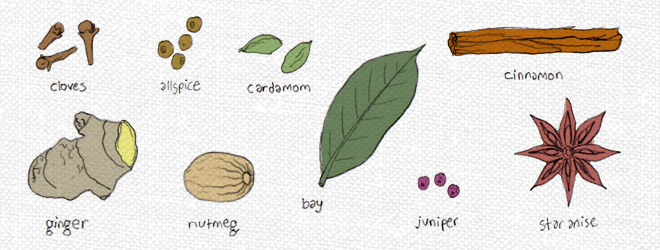
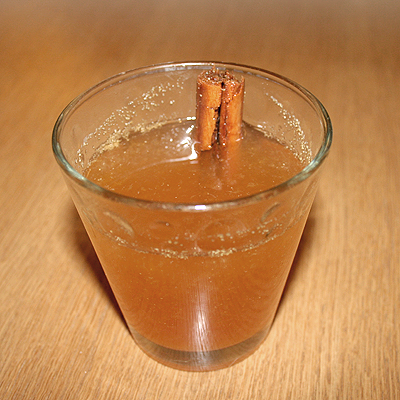
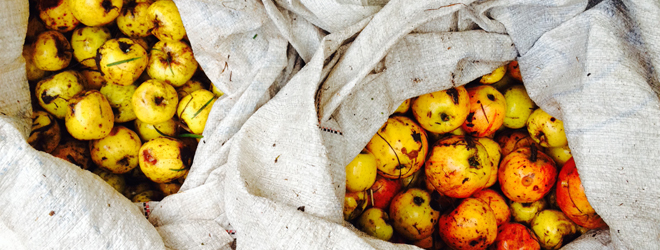

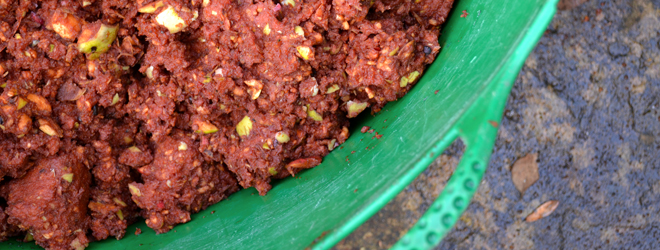
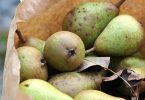
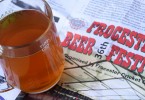
I made some mulled cider last year with some particularly (and literally) ropey locally made cider and it transformed it from something barely sippable into a really quite nice beverage. We served it in dinky old teacups. Think I overheated it though as I drank pints of it (lots of teeny teacupsful) without getting remotely tipsy. What a swizz. Daft question… Where can I get juniper berries from?!
That’s why I slosh in rum. An insurance policy against alcohol evaporation. My juniper berries are packaged by Schwartz. Brown lid. Don’t recall where I got them from, but probably one of those health food shops that sells spices, bombay mix, muesli ingredients and horrible fruity flapjacks.
Ooh good thought. My mind had kind of blanked those out (oh no – flap jack flashback!). Thank you! (Not for the flapjack flashback though. Did you ever have one with that brown lard masquerading as chocolate on it? See also centre of Walls feast).
You can get lard cover flapjacks at services stations. They tend to come in three types – brown lard, white lard and brown lard with bits in. I occasionally treat myself on a long journey (it’s that or a cold sandwich of grated double gloucester, fake chives and soft, soft savoury lard)
[…] can forget your fancy mulled ciders though (but do check our definitive guide) – have you ever considered the merits of a post-medieval […]
[…] the house with the quintessential festive aroma of cinnamon and cloves. While we usually advocate mulling your own drinks (it’s handy for us to rejuvenate less than perfect cider making experiments), there’s no harm […]
[…] I enjoyed: The science of mulled cider; and A guide to choosing the right paving stone for your […]